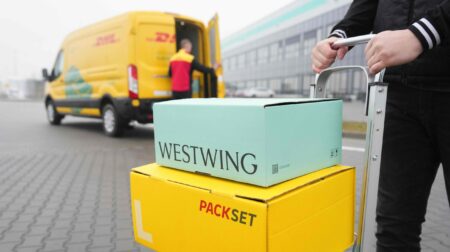The IPC Board has published the results of its 2022 IPC Sustainability Measurement and Management System (SMMS). According to the organization, the participating postal operators have made good progress since the 2019 baseline.
As part of their collective 2030 targets, posts participating in the SMMS strive to have 75% of the energy used in their buildings originating from renewable sources, 50% of their vehicle fleet composed of alternative fuel vehicles (with at least 25% of the total fleet to be electric vehicles) and 75% of group waste recycled or reused.

The SMMS group has increased its use of renewable electricity from 14% of total electricity use in 2012 to 38% in 2022. It has grown its collective alternative fuel vehicle fleet from 65,000 (12% of total vehicles) in 2012 to 165,000 (26%) in 2022, and 127,000 (20%) are now electric vehicles (EVs). In 2022, the group reused or recycled 61% of total non-hazardous waste, a 14% increase since 2019, and is moving positively toward the 75% target.

In 2022, posts reported a 35% reduction in annual Scope 1 and 2 carbon emissions compared with a 2008 baseline. Since 2008, the group’s cumulative reduction in Scope 1 and 2 emissions now equals 28.7 million tons of CO2.

The IPC SMMS was launched in 2019 to address the sustainability objectives of the postal sector for the next 10 years, aligned with the organization’s sustainable development goals (SDGs). It expands on the 2009-2019 Environmental Measurement and Monitoring System (EMMS) program, which focused on reducing carbon emissions. It broadens the remit to the seven sustainability focus areas most relevant for the postal sector: health and safety, learning and development, resource efficiency, climate change, air quality, circular economy and sustainable procurement.
Overall, the results show a slight increase in the sustainability management proficiency (SMP) score for all the posts participating in the program after the 2021 results had been restated taking into account the new participants that joined the program in the reporting year 2022. Posts are progressing well toward their 2030 targets regarding CO2 emissions reduction, renewable energy use, alternative-fuel vehicles and waste separation for recycling or reuse.
Holger Winklbauer, CEO of IPC, commented, “The continuous expansion of the SMMS program clearly indicates the willingness of postal operators to work together to reduce their carbon footprint and the motivation to learn from each other’s best practices. Noting the addition of new participants, the program results keep improving and make us look at the future with a positive mindset as collaboration continues.”
Read more key sustainability updates from the parcel and postal technology industry, here.





